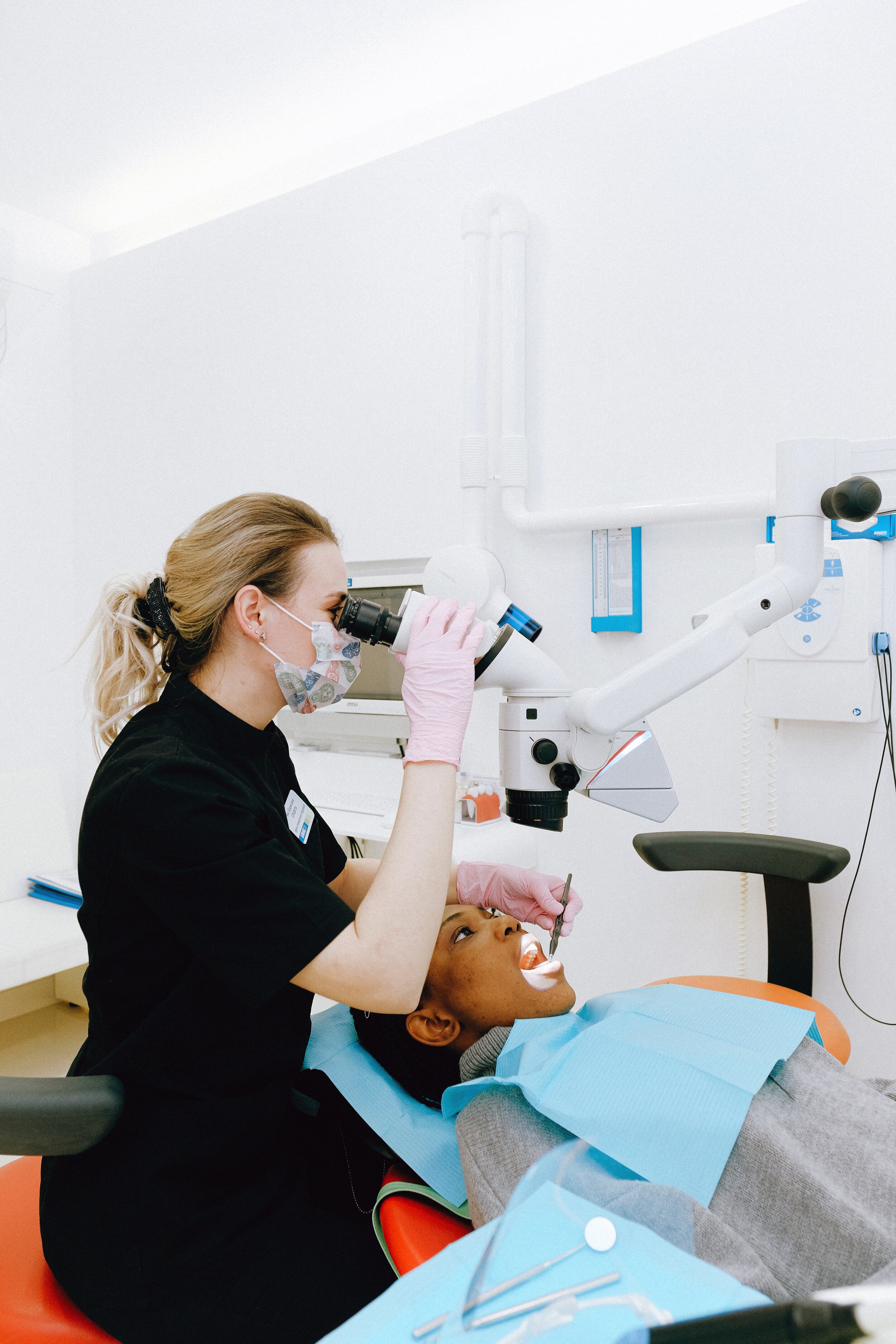
Is Dentistry For Me?
Do I really want to be a dentist?
Given that you’ve ended up on this page, there’s a strong suggestion that studying dentistry is on your mind.
At this point you may be in one of two predicaments. You maybe absolutely certain that dentistry is the career choice for you or you may still be undecided. After reading this page, I’m certain that we can help provide some clarity to help with making your decision more definitive.
This, in fact, maybe one of the most important pages. Knowing WHY you want to do this career is often more important than HOW.
It is strongly advised that anyone following any career pathway, fully understands the career and ensures it is suitable for them.
Dentistry as a career choice
Dentistry as a career provides a very unique opportunity to work in society as a health care professional, diagnosing, treating and managing a variety of oral and dental health issues, including aesthetic issues affecting patients.
As a dentist you will ideally have a personable nature, a desire to help others, strong manual dexterity and the ability to use sound judgement to help make clinical decisions in the patient’s best interest.
Of course, oral and dental health play a significant role in overall health and wellbeing. Dentists are privileged to be skilled at helping improve the aesthetics of an individual’s dentition, enhance function for speech and eating and alleviate dental pain caused by disease. Using their range of technical skills and knowledge. dentists’ also have a vital role in identifying and diagnosing sinister changes in the head and neck region, including oral cancer. Therefore their role in society extends far more than just managing dental health conditions.
Importantly, all dentists work as part of a wider team in caring for a patient.
Typical Careers In Dentistry
General Dental Practitioner
Most dentists work as General Dental Practitioners also termed GDPs.
GDPs have a broad range of skills and work usually in ‘high street’ practices providing a variety of routine and complex treatments. GDPs are usually self-employed and work under an associateship agreement with the practice owner. A GDP may work solely under the NHS, be a mixed NHS and private practitioner or sole provide private treatments. This would often be based upon the practice they work within. Most practices in UK are mixed practices providing contractural NHS services and private dental treatments.
A GDP can enhance their scope of practice by undertaking structured learning and additional postgraduate training to develop skills. Examples of these include, but are not limited to, dental implant placement and restoration, non surgical facial aesthetic treatments and intravenous conscious sedation. Therefore a ‘general’ dentist may undertake formal postgraduate training e.g. MSc in Implant Dentistry to enhance their skill set.
Further more, GDPs have the flexibility in their career to work full time or part time (depending on their contractual agreement). This offers great possibility to have work-life harmony. Some choose to work part time in hospital or another practice, undertake lectureship or teaching positions or spend the time conducting personal non dental activities.
Hospital Dentistry
Hospital dentistry comprises of four service deliveries:
Dental consultant led treatment planning and management- often patients referred from primary care practice. These may include, but not limited to, oncology, hypodontia, cleft-lip and palate patients.
Complex dental care for in-patients such as head and neck cancer patients in oral and maxillofacial departments or orthognathic (jaw) surgery patients.
Emergency dental care for out-patients such as acute dental pain or dental trauma
Medically compromised out-patients requiring treatment in hospital setting as treatment is too complex for primary dental care. For example patients taking intravenous bisphoshonates for cancer who are at risk of Medication Related Osteonecrosis of the Jaw following dental extraction (tooth removal).
Hospital dentists are salaried employee’s. The Hospital also facilitates a pathway for NHS postgraduate training. Here, dentists undertake structured training to gain specialist status and, where applicable, attain consultant position. Dental hospitals also facilitate university training for dentistry students on patients.
Dentists working in a hospital may generally fall under these job categories:
Dental Consultant
Specialty Registrar (StR)
Specialty Dentist / Staff Grade (SpD)
Dental Core Trainee/ Senior House Officer (DCT/SHO)
Academic Clinical Fellow/ Lecturer (ACF/ACL)
Clinical Tutor/ Assistant
Community Dentist
Community Dental Services are provided to ensure that everyone can have access to dental health care. Some patients due to physical disability or medical condition are unable to be treated in general dental practice.
A community dentist is salaried and may work in a variety of locations including an outreach centre, patient’s own home, nursing homes, community clinics and mobile clinics.
Patients who may need community dental services include
High decay risk children requiring anxiety management control with inhalation sedation
Children with learning difficulties such as autism sector disorder
Adults who have difficulty accessing general dental services such as those with learning difficulty, mental health problems or bariatric patients
Adults requiring home visits (domiciliary care)
Read more about special care dentistry in Dr Natalie Bradley’s article here

Dental Specialists
Dental Specialties
Dentists may further their training to gain specialist status. The General Dental Council grants entry to the specialist list through the practitioner evidencing their training and experience. Only those on this list can call themselves a ‘specialist’ .
The lists of specialists exists to ( taken directly from GDC website) :
Ensure high standards of training and assessment qualifying dentists to use a specialist title
Indicate those dentists who possess recognised specialist knowledge, skills and attitudes
Protect patients against unwarranted claims to be a specialist
Facilitate appropriate referrals of patients
Promote high standards of care by dentists qualified to use a specialist title
Encourage postgraduate education
There are 13 dental specialties , the route to each specialty has been determined by European and GDC regulations
Each Dental Specialty (taken from GDC website)
1. Dental and Maxillofacial Radiology
Involves all aspects of medical imaging which provide information about anatomy, function and diseased states of the teeth and jaws.
2. Dental Public Health
A non-clinical specialty involving the science and art of preventing oral diseases, promoting oral health to the population rather than the individual. It involves the assessment of dental health needs and ensuring dental services meet those needs.
3. Endodontics
The cause, diagnosis, prevention and treatment of diseases and injuries of the tooth root, dental pulp, and surrounding tissue.
4. Oral and Maxillofacial Pathology
Diagnosis and assessment made from tissue changes characteristic of disease of the oral cavity, jaws and salivary glands. This is a clinical specialty undertaken by laboratory-based personnel.
5. Restorative Dentistry
Involves replacing missing teeth, repairing damaged teeth and extends to rehabilitation of the whole mouth, based on the three monospecialties prosthodontics, periodontics and endodontics .
6. Oral Medicine
Oral health care of patients with chronic, recurrent and medically related disorders of the mouth and with their diagnosis and non-surgical management.
7. Oral Microbiology
Diagnosis and assessment of facial infection, typically bacterial and fungal disease. This is a clinical specialty undertaken by laboratory-based personnel who provide reports and advice based on interpretation of microbiological samples.
8. Oral Surgery
The treatment and ongoing management of irregularities and pathology of the jaw and mouth that require surgical intervention. This includes the specialty previously called Surgical Dentistry.
9. Orthodontics
The development, prevention, and correction of irregularities of the teeth, bite and jaw.
10. Paediatric Dentistry
Comprehensive therapeutic oral health care for children from birth through adolescence, including care for those who demonstrate intellectual, medical, physical, psychological and/or emotional problems.
11. Periodontics
The diagnosis, treatment and prevention of diseases and disorders (infections and inflammatory) of the gums and other structures around the teeth.
12. Prosthodontics
The replacement of missing teeth and the associated soft and hard tissues by prostheses (crowns, bridges, dentures) which may be fixed or removable, or may be supported and retained by implants.
13. Special Care Dentistry
The improvement of the oral health of individuals and groups in society who have a physical, sensory, intellectual, mental, medical, emotional or social impairment or disability or, more often, a combination of these factors. It pertains to adolescents and adults.
Learn more about the GDC dental specialist list https://www.gdc-uk.org/registration/your-registration/specialist-lists
Other career options
Armed forces dentist
Become a ‘dental officer’ in the Royal Army Dental Corps. Here, you will work with the Army, Royal Navy and Royal Air Force providing dental care. The army offers unique benefits such as a minimum starting salary following training of £70,000 and funds dental degrees for prospective army dentists. However you are usually committing 4 years to the Royal Army Dental Corps in return.
Dental forensics
Forensic dentistry deals with obtaining identifiable information of individuals for legal purposes, through examination and handling of dental evidence of deceased patients. It is likely that forensic dentists will work with a wider team of professionals including pathologists, anthropologists and the police.
Clinical Tutor
If you enjoy and are passionate about helping others learn, you may wish to take up a teaching role. Many GDP’s are ‘visiting tutors’ at dental teaching schools and work with undergraduate dental students to help with their clinical practice.
Working part-time as a teaching dentist can help to create a varied working week.
Dental practice ownership
You may have a burning desire to be your own boss. For many dentists, owning a practice is their end goal and forms part of their career pathway. With many perks such as increased flexibility of treatment, having your own set-up and owning your own asset it is not surprising that many dentists choose this option. However, ownership is not for everyone and many dentists are content with working for a practice owner as an associate or being a salaried dentist.
Read practice owner Amit’s story as he discussed his life as a business owner
Dental Research
Dentistry is a vast field with 13 dental specialties. With a continuous drive for further new evidence and information, research and development is key to ensuring that the best available evidence is delivered to patients. Research is often conducted within dental teaching universities in collaboration with professors, senior academic staff, postgraduate students and specialty registrar and consultants.
Portfolio career
The term ‘portfolio career’ has been more drawing more traction in dentistry, but what is this? Effectively this is a career which consists of several part-time roles at once rather than one full time job.
The term can be given to those clinicians who wish to work at different clinics or hold more than one ‘title’. For instance, working part-time at two dental clinics whilst also holding a clinical tutor role at a dental teaching hospital.
Read Bilal’s article here as he describes his varied week as a ‘portfolio dentist’

Is Dentistry For Me?
After reading this page , we hope that you feel more clear on what dentistry may offer for you, as a career. If you are still uncertain, or have questions why not read our article written by qualified dentists and current dental students. Use these valuable insights to help gauge a better understanding, so you can make an informed decision.
Still unsure about the career
Why not listen to the real life stories of qualified dentists who have all taken different career pathways, varying from dental business owners to those working in prison dentistry!
This is a fantastic opportunity for you to really explore the scope of a dentist.
Still unsure about the dentistry course
Hear from dentistry students around the UK as they discuss their journey to dental school, how they have found the course and more about what studying dentistry entails.
Learn about the dentistry university experience and more about each students journey!
I’m certain it’s for me.
If you know that dentistry is for you, there is still great benefit in hearing from current dentistry students and qualified dentists!
However, if you are certain this is the career for you, then we advise you learn about the process of applying here.




